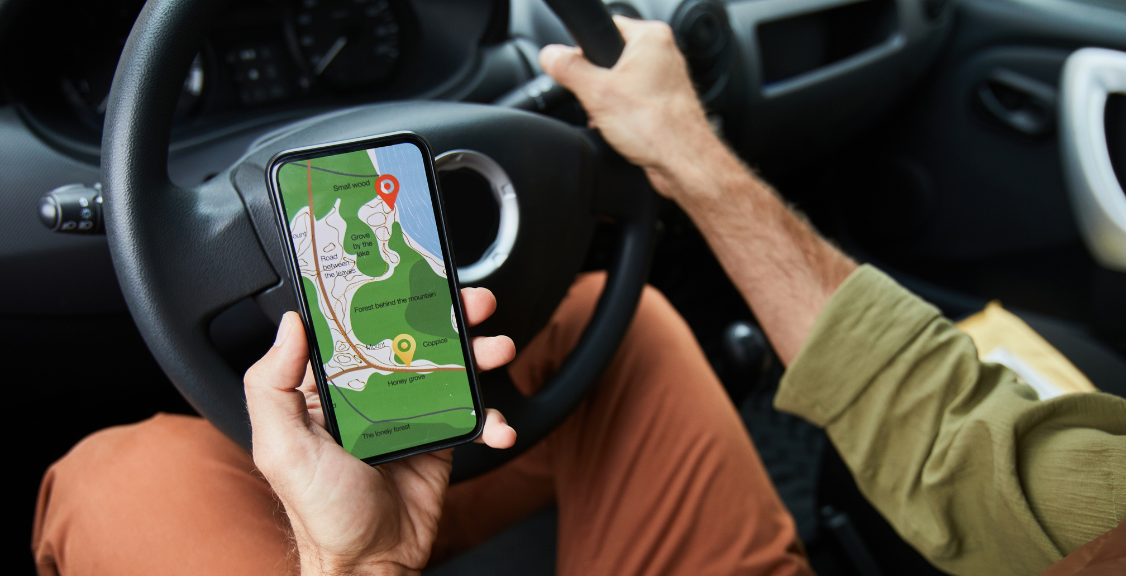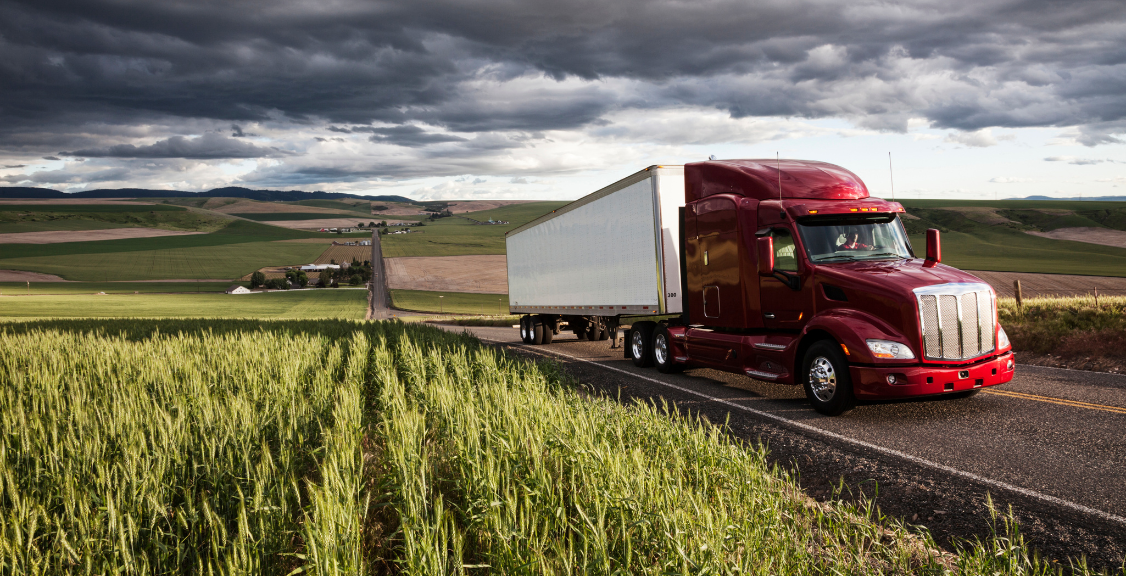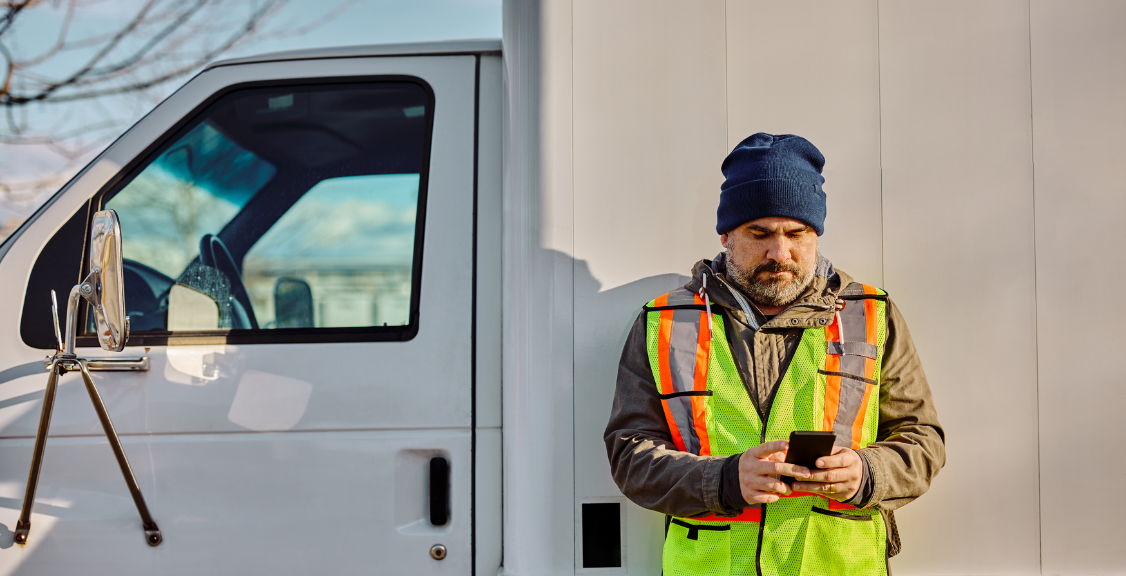Key Takeaways
- Using an ELD on Phone with a Mobile ELD app is a cost-effective and flexible alternative to traditional ELD devices.
- A smartphone-compatible ELD app must be FMCSA-registered to ensure compliance and avoid violations.
- BYOD solutions provide convenience but require stable Bluetooth connectivity, reliable power, and strong data security measures.
- Regular software updates and proper training help drivers and fleet managers maintain ELD compliance with smartphones.
- Partnering with a trusted provider ensures reliable Mobile ELD performance, compliance, and ongoing support for hassle-free electronic logging.
Table of Contents
A Guide on Using an ELD on Smartphones
Electronic Logging Devices (ELDs) are essential for tracking driving hours and ensuring compliance with FMCSA regulations. They replace paper logs and help trucking companies maintain accurate records. Many drivers and fleet operators are now considering ELD on Phone solutions instead of dedicated hardware. Mobile ELD systems use ELD apps installed on smartphones or tablets, offering a cost-effective and flexible way to meet ELD compliance with smartphones. With BYOD (Bring Your Own Device) policies becoming more common, using a personal phone for electronic logging is an increasingly popular choice.
Using a smartphone as an ELD on a Phone has several advantages, including affordability, ease of use, and regular software updates. But, it also comes with challenges such as smartphone compatibility, Bluetooth connectivity issues, data security risks, and FMCSA-registered ELDs compliance. This guide explains the benefits, potential drawbacks, and essential legal considerations of using a Mobile ELD.
Understanding ELD on Phone
An ELD on Phone allows truck drivers to log hours of service (HOS) using a Mobile ELD app on a smartphone or tablet. Instead of relying on a dedicated hardware device, drivers can connect their phone to the truck’s engine control module (ECM) via Bluetooth connectivity or a wired adapter. This method is part of the growing BYOD (Bring Your Own Device) trend in the trucking industry, offering flexibility and cost savings. However, not all ELD apps work the same way, and ensuring smartphone compatibility with FMCSA regulations is essential for legal compliance.

How ELD on Phone Works
- ELD App Installation – A driver installs an FMCSA-registered ELD app on their smartphone.
- Connection to Vehicle ECM – The phone pairs with the truck’s ECM using Bluetooth connectivity or a physical adapter.
- Automatic Data Recording – The system logs engine hours, vehicle movement, and driver status in real-time.
- Cloud Storage & Reporting – Data is stored securely and can be accessed for compliance checks.
- HOS Compliance Management – The app automatically calculates driving hours and alerts drivers of potential violations.
Differences Between Traditional ELDs and Mobile ELDs
- Device Type – Traditional ELDs are fixed hardware, while Mobile ELDs run on a smartphone or tablet.
- Cost – Dedicated ELD devices come with upfront hardware costs, while a BYOD approach allows drivers to use their own smartphones or tablets, eliminating the need for additional equipment expenses.
- Flexibility – A smartphone-based ELD on the Phone can be updated with new software features easily.
- Risk Factors – Battery life, connectivity issues, and data security concerns are more relevant to mobile solutions.
A Mobile ELD setup is a flexible and cost-effective option for truck drivers and fleet operators. Choosing a smartphone-compatible ELD app that meets FMCSA-registered ELD standards is essential for compliance. BYOD solutions offer convenience, but maintaining data security, stable connectivity, and uninterrupted functionality is necessary for accurate and reliable electronic logging.
Benefits of Using a Smartphone as an ELD
Using a Mobile ELD on a smartphone is an affordable and convenient way for truck drivers to comply with ELD regulations. Instead of purchasing dedicated ELD hardware, drivers can install an ELD app on their personal or company-issued phone. This BYOD approach helps reduce costs, simplifies usage, and provides greater flexibility. Many FMCSA-registered ELDs offer smartphone compatibility, allowing drivers to log Hours of Service (HOS) without additional hardware investments.

Essential Benefits of Using an ELD on Phone
- Cost-Effective Solution – No need to buy expensive ELD hardware, drivers can use their existing smartphone or tablet.
- Easy to Use – ELD apps have user-friendly interfaces that simplify HOS tracking.
- Regular Software Updates – Compared to dedicated ELD devices, Mobile ELD apps receive frequent updates to stay compliant with the latest regulations.
- Greater Flexibility – Drivers can switch between devices if needed, as long as the ELD app is installed.
- Bluetooth Connectivity & Integration – Easily connects with the truck’s ECM for automatic data recording.
- Cloud Storage & Accessibility – Data is securely stored and can be accessed anytime for compliance checks.
Using a smartphone-compatible ELD app provides truck drivers with a practical and cost-saving alternative to traditional ELD hardware. The ability to update software, switch devices, and integrate with Bluetooth connectivity makes it a flexible option. Ensuring the ELD on Phone is FMCSA-registered and meets compliance standards is essential to maintaining accurate and legal HOS records.
Drawbacks and Challenges of Mobile ELDs
While using a Mobile ELD on a smartphone offers convenience and cost savings, it also comes with certain challenges. ELD compliance with smartphones depends on factors like smartphone compatibility, Bluetooth connectivity, data security, and reliable power sources. Truck drivers and fleet managers must be aware of these potential issues to ensure uninterrupted electronic logging and compliance with FMCSA-registered ELDs.

Challenges of Using an ELD on Phone
- Compliance Concerns – Not all ELD apps meet FMCSA regulations, making it essential to choose an FMCSA-registered ELD to remain compliant and avoid violations.
- Smartphone Compatibility Issues – Some ELD apps may not work properly on all devices, requiring specific operating systems or hardware capabilities.
- Battery & Connectivity Limitations – Smartphones rely on battery life, and Bluetooth connectivity issues can disrupt automatic logging if the phone disconnects from the truck’s ECM.
- Data Security Risks – BYOD solutions pose security concerns, as personal phones may not have strong cybersecurity protections, increasing the risk of data breaches.
- Device Distractions & Usage Restrictions – Some carriers may have policies restricting phone use while driving, which could create complications when using a Mobile ELD.
Using a smartphone-compatible ELD app can be a practical choice, but it requires careful consideration of compliance, connectivity, security, and device limitations. Ensuring a reliable power source, strong Bluetooth connection, and adherence to FMCSA standards is important for avoiding disruptions and maintaining accurate ELD compliance with smartphones.
FMCSA Compliance and Legal Considerations
To legally use an ELD on a Phone, truck drivers and fleet operators must ensure that their Mobile ELD setup complies with FMCSA regulations. The ELD app must be listed on the FMCSA-registered ELDs database and meet all technical requirements. Failure to use a compliant system can result in fines, violations, and potential downtime.

FMCSA Compliance Requirements for Mobile ELDs
- FMCSA-Registered ELDs – The ELD app must be on the official FMCSA list of approved devices.
- Automatic Data Logging – The system must automatically record engine hours, vehicle movement, and driver status.
- Unalterable Records – Data must be secure and tamper-proof to prevent falsification of logs.
- Backup and Storage – Logs should be stored safely and accessible for compliance reviews.
- Device and Connectivity Standards – The smartphone-compatible ELD app must maintain a stable connection to the truck’s ECM through Bluetooth connectivity or a wired adapter.
Ensuring Legal Compliance with a Mobile ELD
- Verify that the ELD app is FMCSA-registered before installation.
- Regularly update the software to meet new compliance requirements.
- Ensure data security by using strong passwords and secure cloud storage.
- Keep a backup device or power source to prevent data loss due to battery failure.
- Train drivers on how to properly use ELD compliance with smartphones to avoid errors.
A Mobile ELD must meet strict FMCSA compliance standards to be legally used for electronic logging. Choosing an FMCSA-registered ELD app, maintaining data security, and ensuring proper connectivity are essential steps for avoiding violations and remaining compliant on the road.
Choosing an ELD on Phone for Cost Savings and Flexibility
Using an ELD on Phone is a practical and cost-effective option for truck drivers and fleet operators. Instead of purchasing dedicated hardware, drivers can install an FMCSA-registered ELD app on their smartphone or tablet. This BYOD approach reduces upfront costs, provides flexibility, and allows for regular software updates. Many Mobile ELD solutions offer Bluetooth connectivity, cloud storage, and easy integration with the truck’s engine, making compliance more convenient. but not all ELD apps meet FMCSA regulations, and choosing a smartphone-compatible solution that maintains accurate records is essential.

Despite the benefits, using a Mobile ELD also comes with challenges, including smartphone compatibility, data security risks, and connectivity issues. Ensuring a stable Bluetooth connection, keeping the device charged, and securing data are important for uninterrupted electronic logging. Compliance requires using an FMCSA-registered ELD, following legal requirements, and regularly updating software to meet the latest standards. A well-chosen ELD app can simplify ELD compliance with smartphones, helping drivers and fleet managers maintain accurate records while remaining within legal requirements.
Stay Compliant with a Reliable Mobile ELD Solution
Geosavi provides the best solutions for truck drivers and fleet operators looking for a smartphone-compatible ELD app that meets FMCSA compliance standards. Using an ELD on Phone requires the right technology, strong data security, and reliable Bluetooth connectivity to ensure accurate electronic logging. Geosavi offers FMCSA-registered ELD solutions designed for BYOD setups, making compliance simple and cost-effective. With expert support, easy-to-use software, and regular updates, we help drivers and businesses stay compliant without the hassle of unreliable apps or connectivity issues.
Contact Geosavi now to find the best ELD app for your fleet and experience hassle-free electronic logging.